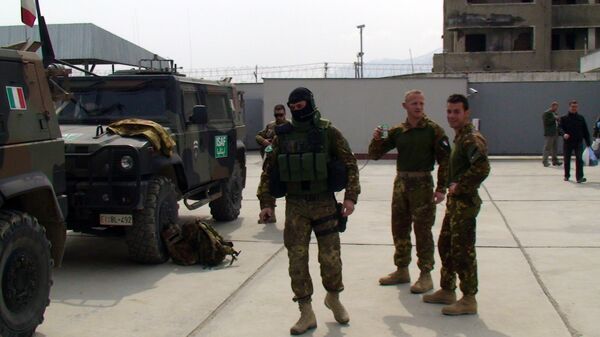The International Security Assistance Force in Afghanistan (ISAF) has not fulfilled the UN Security Council’s mandate to train Afghan security forces and assist in the rebuilding of government institutions andinstead has allowed the al-Qaeda terrorist group to open new branches, Ilya Rogachev, director of the Russian Foreign Ministry’s department of new challenges and threats, told RIA Novosti.
"Objectively speaking, the mandate has not been fulfilled. The core of al-Qaeda has been weakened, but the regionalization of the organization has begun. A large number of regional branches that are powerful and dangerous by themselves have appeared. That is why it is almost pointless to say that the ISAF continues to fight al-Qaeda in Afghanistan," Rogachev said.
Drug trafficking was another large threat coming from Afghanistan, the diplomat said, adding that Russia has raised the question about including the fight against illegal drug production into the mandate several times, but its "partners did not go there."
"They have formal ground for this: our military men also say the Army is not for fighting drugs. And they are right. But the issue is also that if foreigners got involved in eliminating poppy crops. In fighting drug trafficking in Afghanistan, the risk of growing casualties among both the military and civilians would rise. A large group of countries that had sent contingents to Afghanistan did not go there," he said.
"If we were more stubborn, the Westerners still would not agree to include this article in the mandate, and the foreign contingent would act in Afghanistan without the mandate of the UN Security Council, and they would do whatever they liked. But this way, we at least have periodic reporting to the UN Security Council," he added.
Moscow has repeatedly accused the international coalition, which sent its forces to Afghanistan at the beginning of the 2000s, of its unwillingness to fight local drug production. NATO responded that the elimination of poppy crops might harm the livelihoods of local farmers.
A UN report published late last year showed that the area under cultivation for opium poppy in Afghanistan rose by one-third to 209,000 hectares in 2013.
The landlocked country is the world’s leading producer and cultivator of opium, according to the UN Office on Drugs and Crime, accounting for 74 percent of all illicit opiates on the global market in 2012. The drug business has been a major source of income for Taliban warlords, bringing them hundreds of millions of dollars every year.
Moscow has repeatedly expressed concern over a possible surge in drug smuggling out of Afghanistan after ISAF troops leave the country, which is slated to happen by the end of this year.


